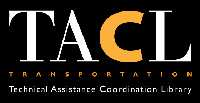Even as on-demand shared mobility options have expanded in the U.S., most are focused in large metropolitan areas. Issues for developing these services in rural areas can include funding, service equivalency, driver and vehicle availability, infrastructure, technology, and more. The Texas A&M Transportation Institute’s (TTI) Transit Mobility program led this workshop focused on a discussion of needs for transportation in rural, frontier, and Tribal areas along with ideas and examples for solutions to service challenges. This Virtual Workshop on Challenges and Successes with Shared‐Use Mobility in Rural, Frontier, and Tribal Areas was co-sponsored by National RTAP and the Shared-Use Mobility Center (SUMC).
Source: https://nationalrtap.eos-intl.net/N94067/OPAC/Details/Record.aspx?BibCode=642390
TA Centers: National RTAP, SUMC
Terms: Financing, Infrastructure, Ridesharing, Ridesourcing, Rural areas, Rural transit, Rural transportation, Rural travel, Shared mobility, Technology, Vehicle sharing
Tags: driver availability, frontier, fund, funding, funds, infrastructure, mobility, on demand, rural, service equivalency, shared mobility, shared use, technology, tribal, vehicle availability

